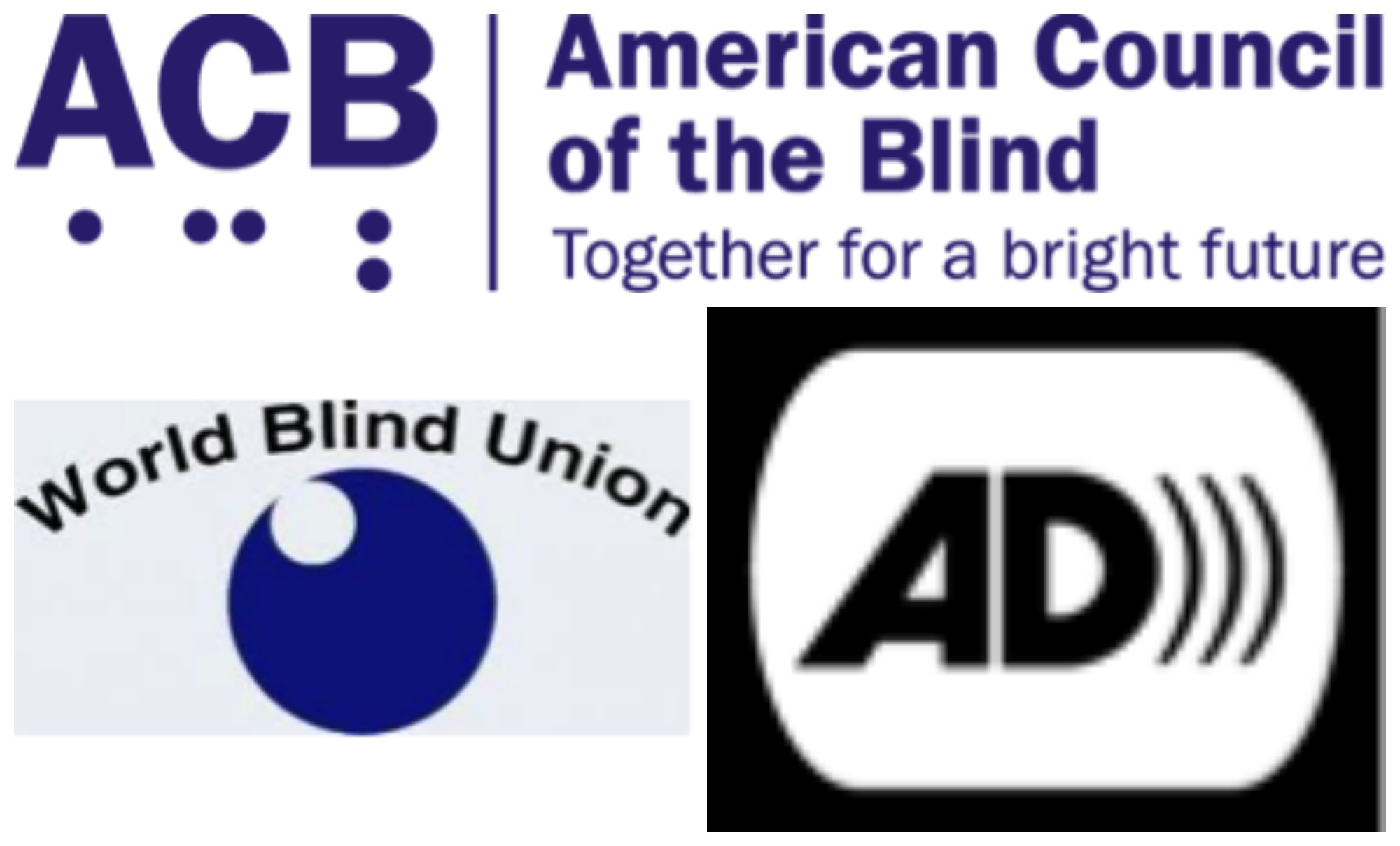
Results From the First Worldwide Survey of Audio Description Activity
Results From the First Worldwide Survey of Audio Description Activity
The World Blind Union and the American Council of the Blind Announce Results From the First Worldwide Survey of Audio Description Activity
A new international survey reveals that audio description (AD) is an important assistive technology worldwide providing access to people who are blind or have low vision to the arts and many other visually-rich events.
The new international AD survey (69 countries and the Pacific Disability Forum) finds that:
- 67% of respondents said that AD is available in the respondent’s country;
- cinema, television, live performing arts, and DVDs lead the list of the type of AD experiences available (followed by museums, the web, smartphones, in educational settings and in visitors’ centers);
- almost 45% said that AD is required by law (64% of those respondents reported that it was required for broadcast television); and
- 99% of respondents said that they believe AD or more AD should be available.
The World Blind Union and the American Council of the Blind are long-time supporters of the growth of AD. Both groups are eager to learn more about the use of AD by people who are blind or have low vision in its member nations, including some of the barriers to its use. (The World Health Organization reports that an estimated 253 million people live with vision impairment.)
Audio description makes visual information of media and the visual or performing arts, in particular, more accessible to persons who are blind or vision impaired. For media and in the performing arts, language, carefully crafted and timed, is voiced usually during the natural pauses in a program’s original soundtrack.
Kim Charlson, President of the American Council of the Blind, emphasizes that “Cultural activities are an important element of our society, often expressing values, trends, fads, historical perspectives, or future directions. People who are blind or visually impaired want and need to be a part of society in all its aspects. Audio description provides the means for blind or visually impaired people to have full and equal participation in cultural life, accessibility to an event, and the right to be first-class citizens. In short, the ability to contribute to, participate in, and enjoy the treasures that society offers.”
Jose Viera, CEO of the World Blind Union, says that “Throughout the world unemployment among people is a significant problem. I am certain that with more meaningful access to our culture and its resources, people become more informed, more engaged with society and more engaging individuals—thus, more employable.”
Additional information about ACB’s Audio Description Project is available at www.acb.org/adp
About the World Blind Union
The World Blind Union (WBU) is the internationally recognized organization, representing the 253 million blind and partially sighted persons in 190 member countries. We are the voice of the blind, speaking to governments and international bodies on issues concerning blindness and low vision in conjunction with our members.
WBU brings together all the major national and international organizations of blind persons and those organizations providing services to people with low vision to work on the issues affecting the quality of life for blind people. Globally, we are divided into six regions, with each region having its own President and volunteer executive team to assist the needs of the local members.
For more information about the World Blind Union, contact Jose Viera, CEO, World Blind Union, 1929 Bayview Avenue, Toronto, Ontario Canada M4G3E8; phone 1-416-486-9698, e-mail: info@wbu.ngo
About the American Council of the Blind
The American Council of the Blind is a national membership organization. Its members are blind, visually impaired, and fully sighted individuals who are concerned about the dignity and well-being of blind people throughout the nation.
Formed in 1961, the ACB is one of the largest organizations of blind people in the world, with more than 70 state and special-interest affiliates and a nationwide network of chapters and members spanning the globe.
For more information about the American Council of the Blind, contact: Eric Bridges, Executive Director, American Council of the Blind, 1703 N Beauregard Street #420, Alexandria, VA 22311; phone (202) 467-5081 or toll-free, 1-800-424-8666; or visit the web site, www.acb.org.
